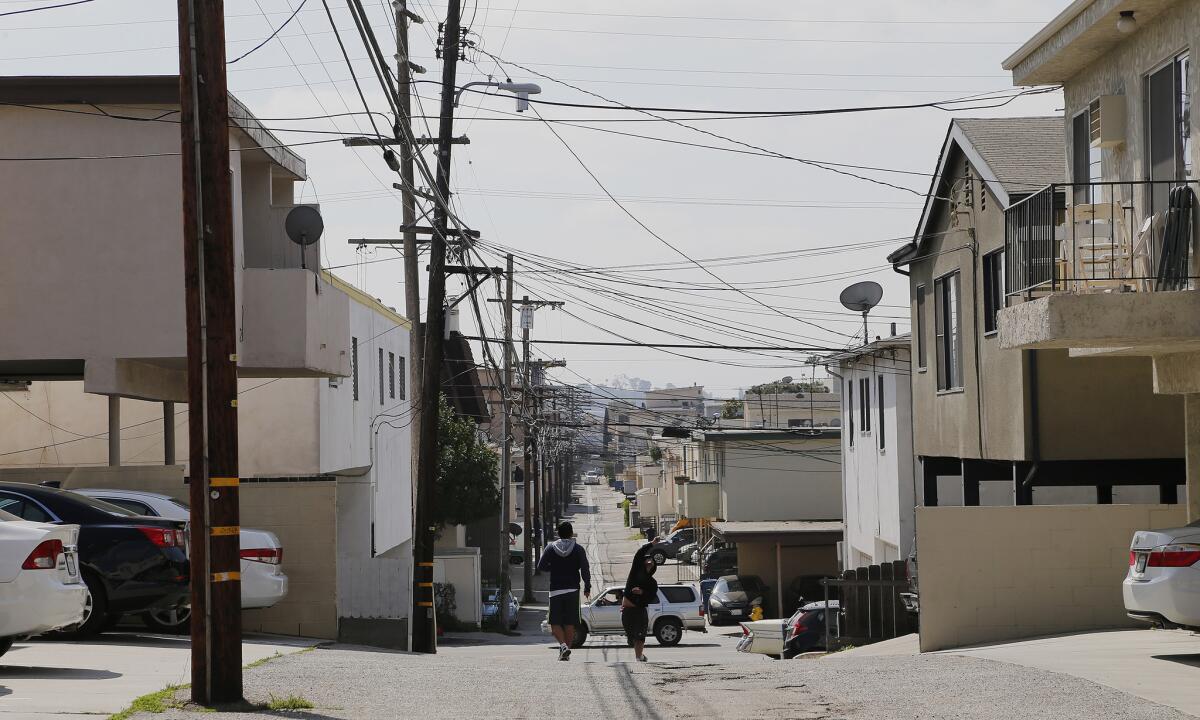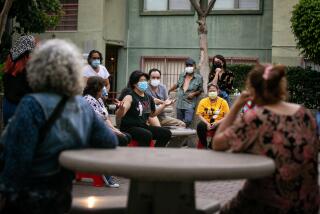Landlord group sues city of L.A. over coronavirus anti-eviction protections

Southern California’s largest landlord organization has launched a legal action against the city of Los Angeles aimed at stripping away protections from evictions during the COVID-19 pandemic.
The Apartment Assn. of Greater Los Angeles, in the federal lawsuit filed Thursday, argued that the city’s efforts to prevent evictions for those who can’t pay due to the economic or health effects of the coronavirus violate landlords’ 5th Amendment rights against government taking of their property without compensation. The lawsuit also targets a measure passed by the L.A. City Council to halt rent increases in more than 600,000 apartments covered by the city’s rent stabilization program due to the pandemic.
“If allowed to stand, the ordinances will not only continue to violate plaintiff’s members’ rights under both the California and United States Constitutions, but will continue to inflict massive and widespread economic damage on property owners and landlords throughout the city,” said the lawsuit, which was filed in U.S. District Court for the Central District of California.
The suit is the latest effort from landlord groups to attempt to overturn anti-eviction rules passed by local governments across the region in the wake of the coronavirus. In at least one case, the city of Upland rescinded its eviction protections under threat of litigation.
A spokesman for L.A. City Atty. Mike Feuer didn’t immediately respond to a request for comment about the lawsuit. Property law experts have said that local governments have broad constitutional authority to temporarily ban evictions during emergencies.
L.A. largest landlord group is arguing in a federal lawsuit that eviction protections passed by the city of Los Angeles are unconstitutional.
Under the city of L.A.’s rules, landlords cannot evict tenants for unpaid rent if they can show in court that they’ve been economically affected by the coronavirus, including those who have lost jobs or wages during the pandemic. Tenants must repay all past-due rent, but they have a year following the expiration of the city’s state of emergency related to the coronavirus to do it. The city also has passed a measure allowing renters to sue their landlords if they violate the anti-eviction regulations.
These rules, however, still allow for evictions to occur. Some tenant advocates have expressed alarm that renters may have to go to court to take advantage of the protections and that historically tenants in the vast majority of eviction cases have not had legal representation. A recent report from the UCLA Luskin Institute on Inequality and Democracy estimated that 365,000 renter households in the county are at high risk of evictions despite the rules aimed at preventing them in the city and across the region.
State courts are blocking almost all evictions and home foreclosures from going forward until three months after California ends its state of emergency because of the COVID-19 pandemic. Earlier this week, the Judicial Council, the policymaking arm of the court system, considered allowing eviction lawsuits to proceed in early August, but backtracked after conversations with Gov. Gavin Newsom, state lawmakers and interest groups, said Chief Justice Tani Cantil-Sakauye in a statement.
“I believe the executive and legislative branches will need more time to sort through various policy proposals,” Cantil-Sakauye said.
More to Read
Sign up for Essential California
The most important California stories and recommendations in your inbox every morning.
You may occasionally receive promotional content from the Los Angeles Times.







